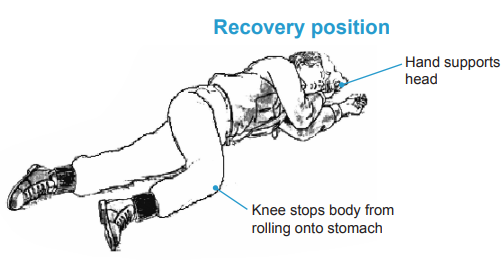Febrile Convulsion
Advice for professionals
When should you worry?
If your child has any of the following:
- Is under 6 months of age
- Has another seizure in the current illness lasting more than 5 minutes and/or does not recover rapidly afterwards
- Becomes extremely agitated, confused or very lethargic (difficult to wake)
- Becomes pale, mottled and feels abnormally cold to touch
- Is going blue around the lips
- Develops a rash that does not disappear with pressure (the ‘Glass Test’)
- Is under 3 months of age with a temperature of 38°C / 100.4°F or above (unless fever in the 48 hours following vaccinations and no other red or amber features)
You need urgent help
Please phone 999 or go to the nearest Hospital Emergency (A&E) Department
If your child has any of the following:
- Has another febrile convulsion (less than 5 minutes) in the current illness
- Remains drowsy or lethargic more than an hour after their seizure
- Has weakness of the arms or legs, visual difficulties (double vision) or difficulty speaking after the seizure has stopped
- Seems dehydrated (sunken eyes, drowsy or no urine passed for 12 hours)
- Is becoming drowsy (excessively sleepy) or irritable (unable to settle them with toys, TV, food or picking up) – especially if they remain drowsy or irritable despite their fever coming down
- Is 3-6 months of age with a temperature of 39°C / 102.2°F or above (but fever is common in babies up to 2 days after they receive vaccinations)
- Continues to have a fever of 38.0°C or above for more than 5 days
- Seems to be getting worse or if you are worried
You need to contact a doctor or nurse today
Please ring your GP surgery or contact NHS 111 - dial 111 or for children aged 5 years and above visit 111.nhs.uk
- If none of the above features are present
Self care
Using the advice below and overleaf you can provide the care your child needs at home
- If your child has a fever and is distressed, you can give them paracetamol (calpol) or ibuprofen. However, remember this might not stop them having a further febrile convulsion and fever is a natural response to infection. Always follow instructions on the bottle and do not exceed daily maximum doses. Never give your child aspirin
- Tepid sponging is not recommended – it does not reduce fever and may cause your child discomfort
We know that all parents/carers are absolutely terrified the first time that they see their child have a febrile convulsion (seizure). This information sheet is designed to provide you with some facts and practical advice.
- They occur in about 1 in 20 children, most commonly between 6 months – 3 years of age
- They often occur on the first day of a febrile illness. There appears to be no connection between the extent of the fever and convulsions, so they can occur even with mild fevers
- Simple febrile convulsions generally last less than 5 minutes, involve the whole body becoming stiff then jerking of all 4 limbs (a tonic clonic seizure) and the child may be sleepy afterwards but should return to their normal self within a couple of hours
- 1 in 3 children who have febrile convulsions may have further convulsions with febrile illnesses in the future
- Regular treatment for prevention of future seizures is usually not necessary. Febrile convulsions are not epilepsy. There is a small risk of your child developing epilepsy in the future and many parents worry about this, however, most children who have childhood simple febrile convulsions grow out of them and do not develop epilepsy
- If your child has had a simple febrile convulsion, has a clear infection source that is causing their fever and you and the medical team are happy, they may be cared for at home
- Place them in the recovery position – on their side, on a soft surface with their face turned to one side. This will stop them swallowing any vomit and keep their airway protected.
- Stay with your child and try to jot down what time their seizure starts and stops.
- Do not put anything in your child’s mouth.
- If the seizure lasts longer than 5 minutes seek immediate medical help – call 999 or go to the nearest A&E.
-
If the seizure lasts less than 5 minutes –
phone your GP or NHS 111 for advice
if you’re worried.




